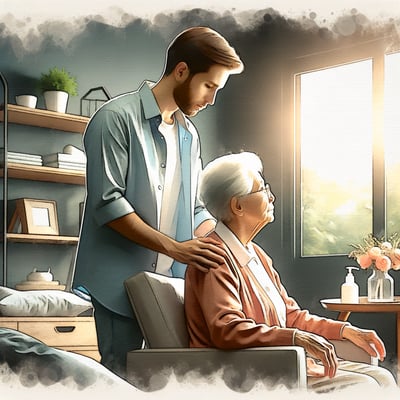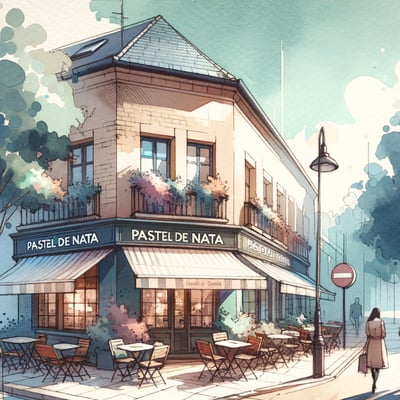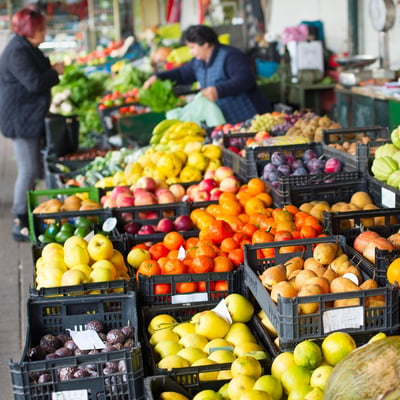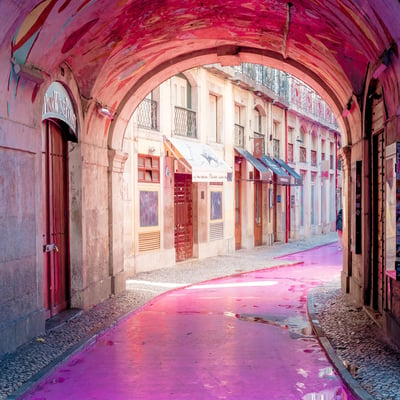1
00:00:00,000 –> 00:00:02,610
PracticePortuguese.com
2
00:00:02,610 –> 00:00:05,660
Joana: Olá, José!
{{Joana: Hi, José!}}
3
00:00:05,660 –> 00:00:08,450
Estou a praticar para uma entrevista de emprego.
{{I’m practicing for a job interview.}}
4
00:00:08,450 –> 00:00:10,480
Podes ajudar-me?
{{Can you help me?}}
5
00:00:10,480 –> 00:00:13,630
José: Claro. Que tipo de emprego?
{{José: Sure. What kind of job?}}
6
00:00:13,630 –> 00:00:16,970
Joana: Entrevistadora de emprego.
{{Joana: Job interviewer.}}
7
00:00:16,970 –> 00:00:21,110
José: Ah… Bem, podes começar.
{{José: Ah… Well, you can start.}}
8
00:00:21,110 –> 00:00:23,770
Joana: Como é que te chamas?
{{Joana: What’s your name?}}
9
00:00:23,770 –> 00:00:26,440
José: Chamo-me José.
{{José: My name is José.}}
10
00:00:26,440 –> 00:00:29,600
Joana: Mas qual é o teu nome completo?
{{Joana: But what’s your full name?}}
11
00:00:29,600 –> 00:00:31,930
José: José Pinheiro.
{{José: José Pinheiro.}}
12
00:00:31,930 –> 00:00:34,210
Joana: Que idade tens?
{{Joana: How old are you?}}
13
00:00:34,210 –> 00:00:37,290
José: Tenho trinta e três anos.
{{José: I’m 33 years old.}}
14
00:00:37,290 –> 00:00:39,040
Joana: És de onde?
{{Joana: Where are you from?}}
15
00:00:39,040 –> 00:00:40,360
José: Sou do Algarve.
{{José: I’m from the Algarve.}}
16
00:00:40,360 –> 00:00:44,110
Mais especificamente, sou de Quarteira.
{{More specifically, I’m from Quarteira.}}
17
00:00:44,110 –> 00:00:46,530
Joana: E gostas do Algarve?
{{Joana: And do you like the Algarve?}}
18
00:00:46,530 –> 00:00:50,900
José: Adoro. Infelizmente, tive de me mudar para Leiria.
{{José: I love it. Unfortunately, I had to move to Leiria.}}
19
00:00:50,900 –> 00:00:53,640
Joana: Porque é que te mudaste?
{{Joana: Why did you move?}}
20
00:00:53,640 –> 00:00:56,380
José: Arranjei um emprego mais bem pago.
{{José: I got a better paid job.}}
21
00:00:56,380 –> 00:00:59,190
Joana: Qual é o teu emprego?
{{Joana: What’s your job?}}
22
00:00:59,190 –> 00:01:02,080
José: Sou tradutor.
{{José: I’m a translator.}}
23
00:01:02,080 –> 00:01:04,780
Joana: E gostas do que fazes?
{{Joana: And do you like what you do?}}
24
00:01:04,780 –> 00:01:08,510
José: Nem por isso. Mas adoro ganhar dinheiro.
{{José: Not really. But I love making money.}}
25
00:01:08,510 –> 00:01:12,560
Joana: Então, e qual é a tua série de televisão favorita?
{{Joana: So, what’s your favourite TV series?}}
26
00:01:12,560 –> 00:01:18,750
José: Essa é difícil… Diria Breaking Bad ou Game of Thrones.
{{José: That’s a tough one… I’d say Breaking Bad or Game of Thrones.}}
27
00:01:18,750 –> 00:01:21,070
Joana: Gostas de viajar?
{{Joana: Do you like to travel?}}
28
00:01:21,070 –> 00:01:23,200
José: Adoro viajar.
{{José: I love to travel.}}
29
00:01:23,200 –> 00:01:26,920
Joana: Qual é o teu destino de sonho?
{{Joana: What’s your dream destination?}}
30
00:01:26,920 –> 00:01:29,320
José: O meu destino de sonho é Cuba.
{{José: My dream destination is Cuba.}}
31
00:01:29,320 –> 00:01:32,680
Mas também adorava visitar a Jordânia.
{{But I’d also love to visit Jordan.}}
32
00:01:32,680 –> 00:01:36,890
Joana: Gostas mais de praia ou de montanha?
{{Joana: Do you like the beach or the mountains better?}}
33
00:01:36,890 –> 00:01:39,980
José: Gosto mais de praia. Não gosto de montanha.
{{José: I like the beach better. I don’t like mountains.}}
34
00:01:39,980 –> 00:01:42,310
Tenho medo de alturas.
{{I’m afraid of heights.}}
35
00:01:42,310 –> 00:01:46,070
Joana: Conta-me algo interessante sobre ti.
{{Joana: Tell me something interesting about yourself.}}
36
00:01:46,070 –> 00:01:48,770
José: Vou contar-te três coisas!
{{José: I’ll tell you 3 things!}}
37
00:01:48,770 –> 00:01:54,380
Fui mordido por um dragão de Komodo quando estava a passar férias na Indonésia.
{{I was bitten by a Komodo dragon when I was on vacation in Indonesia.}}
38
00:01:54,380 –> 00:02:03,380
Sou o mais velho de quinze irmãos. E sou alérgico a sabão azul.
{{I’m the eldest of 15 siblings. And I’m allergic to blue soap.}}
39
00:02:03,380 –> 00:02:05,250
PracticePortuguese.com

 Joana
Joana Rui
Rui











confused by the Imperfeito there with ‘adorava’:
“Mas também adorava visitar a Jordânia”
would have thought in the context of what they are talking about, that would have to use either the Conditional ? .. or maybe the Present Subjunctive ? or even the Future Subjunctive ?
Thanks !
Your confusion is totally understandable! The conditional can also be expressed without using it at all! In European Portuguese, it’s accepted in casual speech to replace the conditional by the imperfect past (pretérito imperfeito do indicativo), with no change in meaning. 🙂
Begs another question actually. Is there a rhythm or reason behind the use of both the actual conditional and that “shortcut” conditional? in this shorty he says “adorava” instead of adoraria, but keeps “diria” instead of what would be dizia. Is it random, personal comfort, or…?
Good question! It seems random, but it’s aligned with common usage patterns in each context. Where the speaker uses ‘diria’ to start their answer, the verb is used idiomatically with the intention of softening the subsequent statement or expressing hesitation, and we keep it in the true conditional form in this case (only this verb is used like this, by the way). ‘Adorava’ appears in a different context, without that idiomatic nuance, and so the imperfect remains viable as an alternative.
Why would a job interviewer be using the informal with her interviewee?
It’s not the norm in Portugal, but certainly possible for some types of jobs/company cultures 🙂 Or maybe she really does need some extra practice.